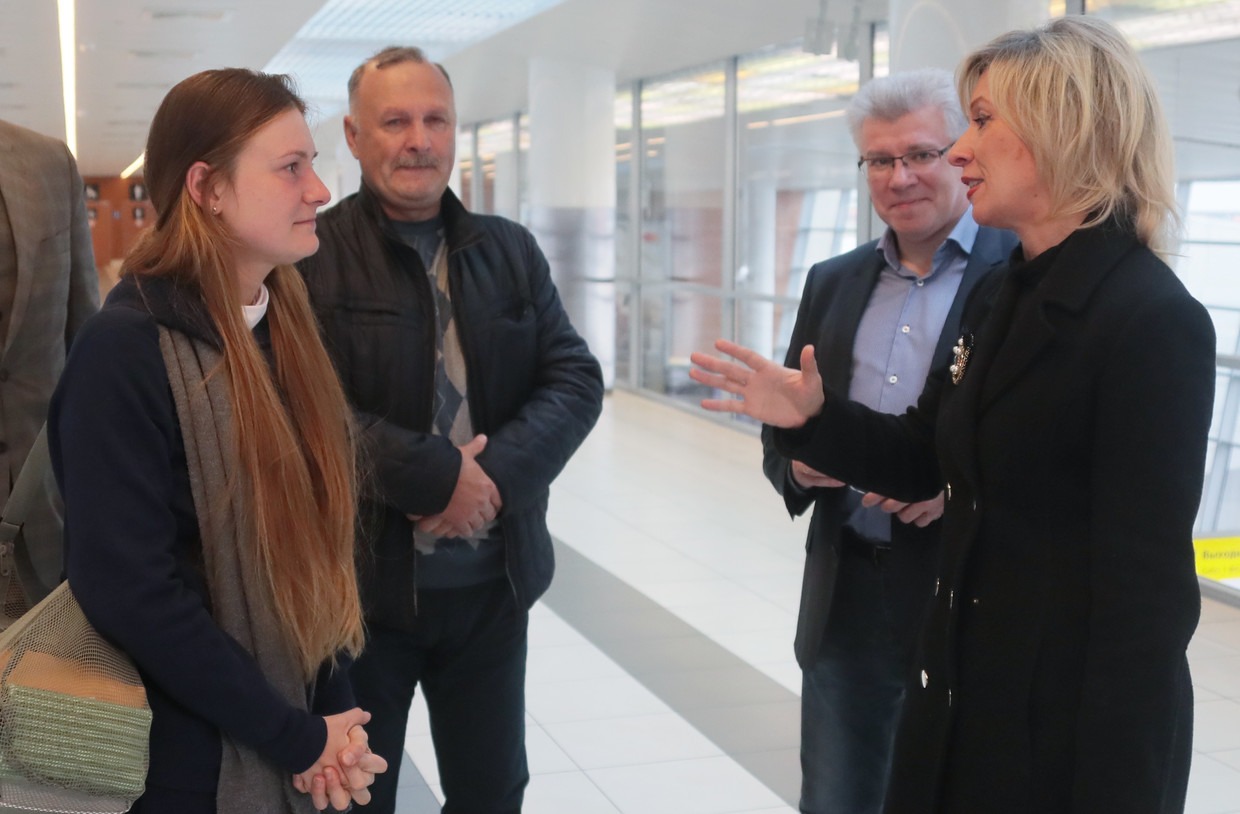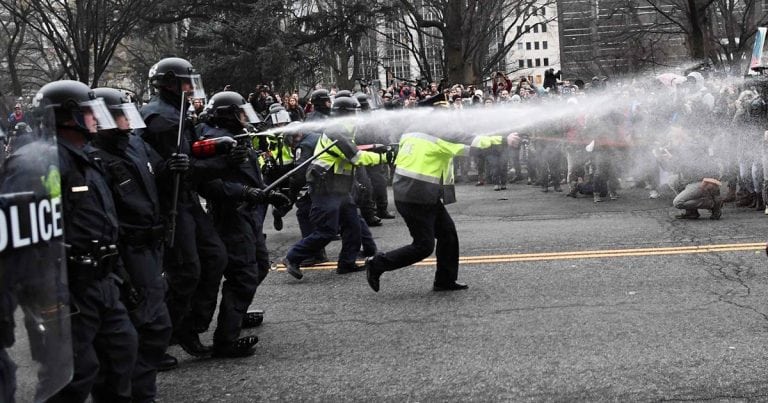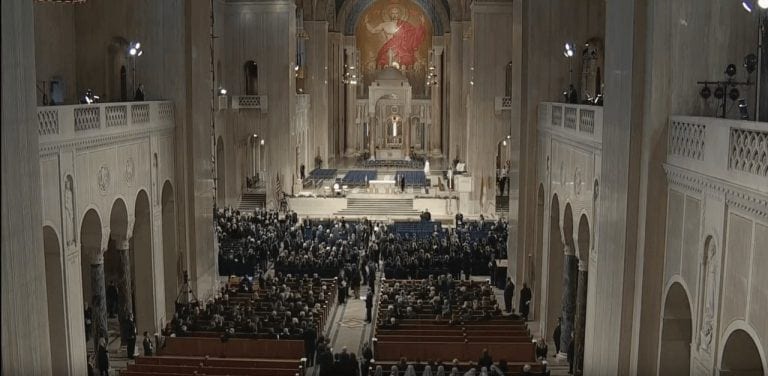Maria Butina explains why she agreed to a plea deal despite her innocence
As the system's woes and contradictions multiply, its regard for established law disintegrates. 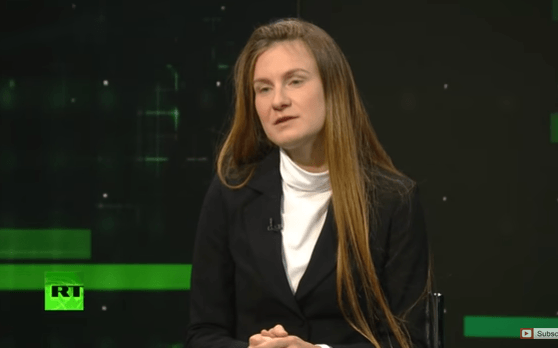
“I saw with my own eyes that there is no justice in the US.”
Leontiev: You signed a plea deal. We were watching the case very closely, just like all of Russia. Some lawyers said the prosecutors might not have enough evidence to prove your guilt. Why then take a plea bargain?
Butina: Imagine you are in a foreign country, away from your parents… you have no contact with your family. You are locked up in solitary confinement. It’s very cold and you sit on the floor. You might be facing a 15-year sentence. I thought about how old I was going to be and whether my parents were going to be alive when that day came. And then you find out, that according to statistics, in the US about 98% of defendants who face a jury get convicted. So the chance of you losing is, well, quite high. Besides, who would have been judging me? I would have faced a jury in Washington – the people who watch CNN, the people who have already been fed this narrative, and with those people, it wouldn’t have mattered what I was being accused of. I would have been on trial for being Russian. I would have been sentenced to 15 years. So I believe I made the only right decision. There was no other way.
https://www.rt.com/news/471950-butina-interview-exclusive-video/
‘My hair color was proof of guilt’: Maria Butina talks her arrest, the NRA, and Senate testimony (FULL INTERVIEW)
Arrested in July 2018, Butina spent eight months in custody, most of it in solitary confinement, before eventually pleading guilty in December. Meanwhile US media telling juicy stories about her that later proved false.
“They just took some Hollywood clichés and made me the scapegoat,” she said. “The color of my hair and my features served as proof of guilt. That’s the way it should be, because we see it this way in the movies.”
Butina testified for eight hours to the Senate Intelligence Committee, where she was grilled by lawmakers on her contacts with the NRA. While prosecutors later viewed her dalliances with the NRA as an attempt to work her way into Republican circles, Butina herself told RT she was more interested in its work campaigning for gun rights that she wanted expanded in Russia, and decried how the organization has become “overly politicized,” and focused on supporting political candidates, instead of “self-defense rights.”
Despite her ordeal, Butina believes good relations between Russia and the US would eventually be built “on the foundation of friendship between people, between students.”
Watch or read below her full exclusive interview to RT where she talks about all the facts and speculation of her saga.
RT's Dmitry Leontiev: Maria, hello. I’m very happy you’re here, because it could have been very different. As far as I know, you could have faced five years in prison.
Maria Butina: Initially, it was 15.
Leontiev: 15?
Butina: Yes, then they cut it down to five. At first, the idea was that I would be given the time I spent on remand and then return home. However, it didn’t go as I expected, I was given a longer sentence.
Leontiev: Let’s start from the very beginning. What were you doing in the US? Why were you there?
Butina: I was studying. I enrolled in a master’s degree at a university in Washington to study international relations. After I obtained a work permit, and I was invited to work at the university as an assistant professor. And then, two days later, I was arrested.
Leontiev:Frankly speaking, I know you were not just studying, right? You were a political activist of sorts.
Butina: Yes, that’s true, but these two things do not contradict each other. I can tell you that when you come to study international relations, it’s only natural to do something practical in this area too. I always had a lot of respect for the US, and I still have. And I also love my home country dearly. So, I thought it only reasonable to do something for the sake of friendship between the two countries, to try to improve relations and engage in civic diplomacy.
Leontiev: Is that still the case?
Butina: I still want to do that. There are good and bad people, it’s the same everywhere. I believe that the American people should really start paying attention to what is happening in their country. But there are good people there, I know this, so I think that good relations between Russia and the US will eventually be built on the foundation of friendship between people, between students – thanks to student exchange programs and religious affinity, too. That’s exactly what I was basically doing, building bridges between the countries though shared interests in gun rights, and I thought that everything would be OK. Unfortunately, the US authorities had been busy disrupting such activities, probably they don’t want peace.
Leontiev:After all what happened, do you think it is possible for relations between Russia and the US to improve?
Butina: Of course. I think that what happened to me, and how Russia is generally depicted in the US, has really nothing to do with Russia per se, they just picked a scapegoat. And especially now with all those petty games the Republicans and Democrats are playing for power. The establishment has nothing to do with people or with democracy, the politicians are just fighting for power and that’s why they need a foreign threat, an enemy. Who could make an ideal enemy? So, they picked Russia and now Russia is blamed for everything, even though there are no grounds for any of the accusations. And then they thought, let’s take some student – like myself – and put her behind bars, and say she is responsible for everything. That is just absurd. If I were a US national, I would be offended to hear something like that, that my own government treats me like that. Do they think I really don’t understand anything? That I cannot choose a candidate on my own, and I need Russian interference to help me make a choice? It’s just ridiculous.
Leontiev:This may sound naïve, but do you think this would have happened if the political climate had been more settled after Trump became president?
Butina: Certainly, political climate is one thing, and the other thing is racism. I regret to say it, but there is racism in the US. And it’s getting stronger. Look, if I belonged to any other ethnic group – not Russian – there would be no case. Today, however, if you are Russian and you are in the US, there is reason to be worried. And I am living proof.
Lawyer to freed Russian gun activist #MariaButina, who is currently on her way to Moscow, says her whole “case” was nothing but a “complete prosecutorial overreach” https://t.co/25n2czp8JP pic.twitter.com/dkTuQChM5O
— RT (@RT_com) October 26, 2019
Leontiev:Let’s talk about your arrest. How did it happen? And what did they charge you with at first?
Butina: That was a terrible day, it’s hard for me to recall what happened. My friend and I, we were about to move after I got a job. All our things were already packed up. And then I heard this wild banging on the door, so my friend went to see what it was and didn’t come back. I became nervous, and then I heard someone saying my name, ‘Maria, come in’. I slowly came up to the door, it was around the corner. I opened it to see some 12 FBI agents in full gear, with assault rifles. They told me to step out from the apartment and handcuffed me, asking whether I had anything I could use to hurt them. What? A copybook maybe? That’s how I was arrested, and until yesterday I was behind bars, today [October, 26] was my first sunrise in a free world.
Leontiev: What did they accuse you of initially, espionage? What?
Butina: I was never charged with espionage, that was simply speculation. The media blew it all out of proportion in their stories, perhaps because of how I looked and some fantasy they made up. Maybe they’ve seen too many Hollywood movies and thought this is how a spy should look. I don’t know, maybe they were just too thick.
Leontiev:Am I right saying that you testified before Congress behind closed doors, and those hearings lasted for some eight or nine hours. Congressmen were asking you questions and telling you to provide thousands of papers. What was all that about?
Butina: When the investigation started, the Senate Intelligence Committee sent me a request asking whether I would like to talk about my activities in relation to the National Rifle Association, the National Prayer Breakfast and why I visited it, as well as my ties with Alexander Torshin. And I said OK, no problem. The next day, I called up Mr. Torshin and…
Leontiev:Was that before your arrest?
Butina: Yes. So I told him about that letter and asked him what he thought I should do. I just wanted to hear his personal advice, because I do respect him and he is an old friend of mine, a very good friend and a mentor too. That’s why I asked him. And he said, Maria, give them all the documents, we are not doing anything wrong. We only want peace and friendship to prevail. And that’s the truth. I don’t know why they decided to search my place. I had given all the documents to the Senate two weeks prior to that. I gave it all voluntarily to show that I’d done nothing wrong, I had nothing to hide.
Leontiev:What were they asking you? Eight hours is a lot of time.
Butina: They asked me about everything I had been doing in the US. How I enrolled in that program and what was the purpose of the visit of NRA representatives to Russia.
Actually, after my home was searched, I didn’t change any passwords on my computer, didn’t delete any files. That’s because, again, I had done nothing wrong. I handed over all the documents voluntarily. So, I really don’t know why they needed to arrest me. If it was just because I didn’t register, then they could have simply fined me for that and that’s it. Why such cruelty, for what?
Leontiev: Right after your arrest, the US media said that a note was found after the police search. And supposedly you wrote that note, it read, “How to respond to an FSB offer of employment.” What was that note?
Butina: I didn’t write that note.
Leontiev:Oh, I see.
Butina: It was my friend who wrote that down, that’s first. Second, I can only guess what he meant by that. As far as I can tell by the conversations we had… listen, if my work eventually transformed into something more serious, then maybe it could have attracted some interest. But history is never hypothetical, it knows no ifs. The Russian security services were not interested in my activities in the US. Period. How can a note like that be considered proof? Especially if it wasn’t even mine. I really don’t understand how it could have become evidence in my case.
Leontiev: Now, the note was not the only thing that happened to you. Your story unraveled during the premiere of a movie about Russian female spies starring Jennifer Lawrence.
Butina: Regrettably
Leontiev:Spies who are ready to use sex for promotions, new contacts and a chance to reach high-profile US officials. This was the image the mainstream media exploited along with the Attorney General’s office, which had to apologize later, right? What was your response to these allegations?
Butina: They should be embarrassed. The US positions itself as a country that protects women’s rights. They should be ashamed of their behavior. They just made the allegations based on my looks. I have a great family. I am proud of it. Both of my grandmothers are teachers. We share the same name. I have nothing to do with these sex stories. What about my life? How do I live on? Yes, they apologized. But what about me now?
I was extremely surprised and saddened that the judge did not do anything about it. The only statement by the judge was, “It took me five minutes to realize that the communications you have submitted as proof are messages between friends” – back in Russia. It had nothing to do with the US.
It was completely absurd.
I thought she would defend me, defend my honor and my dignity, because she was also a woman.
Butina: When the investigation started, the Senate Intelligence Committee sent me a request asking whether I would like to talk about my activities in relation to the National Rifle Association, the National Prayer Breakfast and why I visited it, as well as my ties with Alexander Torshin. And I said OK, no problem. The next day, I called up Mr. Torshin and…
Leontiev:Was that before your arrest?
Butina: Yes. So I told him about that letter and asked him what he thought I should do. I just wanted to hear his personal advice, because I do respect him and he is an old friend of mine, a very good friend and a mentor too. That’s why I asked him. And he said, Maria, give them all the documents, we are not doing anything wrong. We only want peace and friendship to prevail. And that’s the truth. I don’t know why they decided to search my place. I had given all the documents to the Senate two weeks prior to that. I gave it all voluntarily to show that I’d done nothing wrong, I had nothing to hide.
Leontiev:What were they asking you? Eight hours is a lot of time.
Butina: They asked me about everything I had been doing in the US. How I enrolled in that program and what was the purpose of the visit of NRA representatives to Russia.
Actually, after my home was searched, I didn’t change any passwords on my computer, didn’t delete any files. That’s because, again, I had done nothing wrong. I handed over all the documents voluntarily. So, I really don’t know why they needed to arrest me. If it was just because I didn’t register, then they could have simply fined me for that and that’s it. Why such cruelty, for what?
Leontiev: Right after your arrest, the US media said that a note was found after the police search. And supposedly you wrote that note, it read, “How to respond to an FSB offer of employment.” What was that note?
Butina: I didn’t write that note.
Leontiev:Oh, I see.
Butina: It was my friend who wrote that down, that’s first. Second, I can only guess what he meant by that. As far as I can tell by the conversations we had… listen, if my work eventually transformed into something more serious, then maybe it could have attracted some interest. But history is never hypothetical, it knows no ifs. The Russian security services were not interested in my activities in the US. Period. How can a note like that be considered proof? Especially if it wasn’t even mine. I really don’t understand how it could have become evidence in my case.
Leontiev: Now, the note was not the only thing that happened to you. Your story unraveled during the premiere of a movie about Russian female spies starring Jennifer Lawrence.
Butina: Regrettably
Leontiev:Spies who are ready to use sex for promotions, new contacts and a chance to reach high-profile US officials. This was the image the mainstream media exploited along with the Attorney General’s office, which had to apologize later, right? What was your response to these allegations?
Butina: They should be embarrassed. The US positions itself as a country that protects women’s rights. They should be ashamed of their behavior. They just made the allegations based on my looks. I have a great family. I am proud of it. Both of my grandmothers are teachers. We share the same name. I have nothing to do with these sex stories. What about my life? How do I live on? Yes, they apologized. But what about me now?
I was extremely surprised and saddened that the judge did not do anything about it. The only statement by the judge was, “It took me five minutes to realize that the communications you have submitted as proof are messages between friends” – back in Russia. It had nothing to do with the US.
It was completely absurd.
I thought she would defend me, defend my honor and my dignity, because she was also a woman.
They could have accused me of being anybody – a foreign agent or whatever…
But those allegations.
As if they didn’t know they were lying.
They knew it. They saw the messages. They realized it was a deliberate lie to keep me detained without any chance of bail.
What do I do now with my reputation?
Bottom line: It is a disgrace for the US
Leontiev:Do you agree it was done on purpose to create an image for the US audience, that the public is familiar with?
Butina: Absolutely. They just took some Hollywood clichés and made me the scapegoat. The color of my hair and my features served as proof of guilt. That’s the way it should be, because we see it this way in the movies.
It was click bait and made for good headlines on TV. If you remove the sex for money hype, the case itself is pretty boring. Was I a foreign agent or not? That’s all bureaucratic, not really exciting. They added flames to the story. I saw with my own eyes that there is no justice in the US.
More than 90 percent of defendants plead guilty to avoid a jury, because they know they will be convicted. What kind of justice are we talking about?
Leontiev:One of the most celebrated newspapers in the US, the New York Times, said you were the person who was supposed to organize a meeting between Trump and Putin… What would you say to that?
Butina: They think too much of me… Absolutely not. The only thing I did vis-à-vis Trump was ask him a question at a conference, and he initially wasn’t even meant to be there.
It was an annual Libertarians conference in Las Vegas, Nevada, and was interested in the event as a person who shares these views. Trump made a surprise visit and I had a chance to ask a question – and lo and behold – I asked him a question about Russia.
Simply because I am a Russian.
I don’t know why everyone was so surprised. There’s nothing strange about that.
I am often asked, ‘Why did you ask him about sanctions?’ I did it because I think trade is the foundation for good relations between countries. That’s been true for thousands of years. Trade has always been a solid foundation to improve ties. So it was natural that I asked him about the sanctions.
First and foremost, it affects the people of both countries.
Leontiev:Did you ever consider using legal means to force top US TV channels to change their narrative? And are you considering it now - or you have other matters to deal with now?
Butina: I am looking at possible options. My return to Russia is not the end of the story. It is just the beginning for me. It’s not right to just get over it and think it’s all in the past.
It’s not fame I want in this life. I must now become a voice for those who are unduly accused or maltreated. I feel I have to do some human rights campaigning. As for my personal case, I need to discuss it with my family first.
I think there will be a decision very soon.
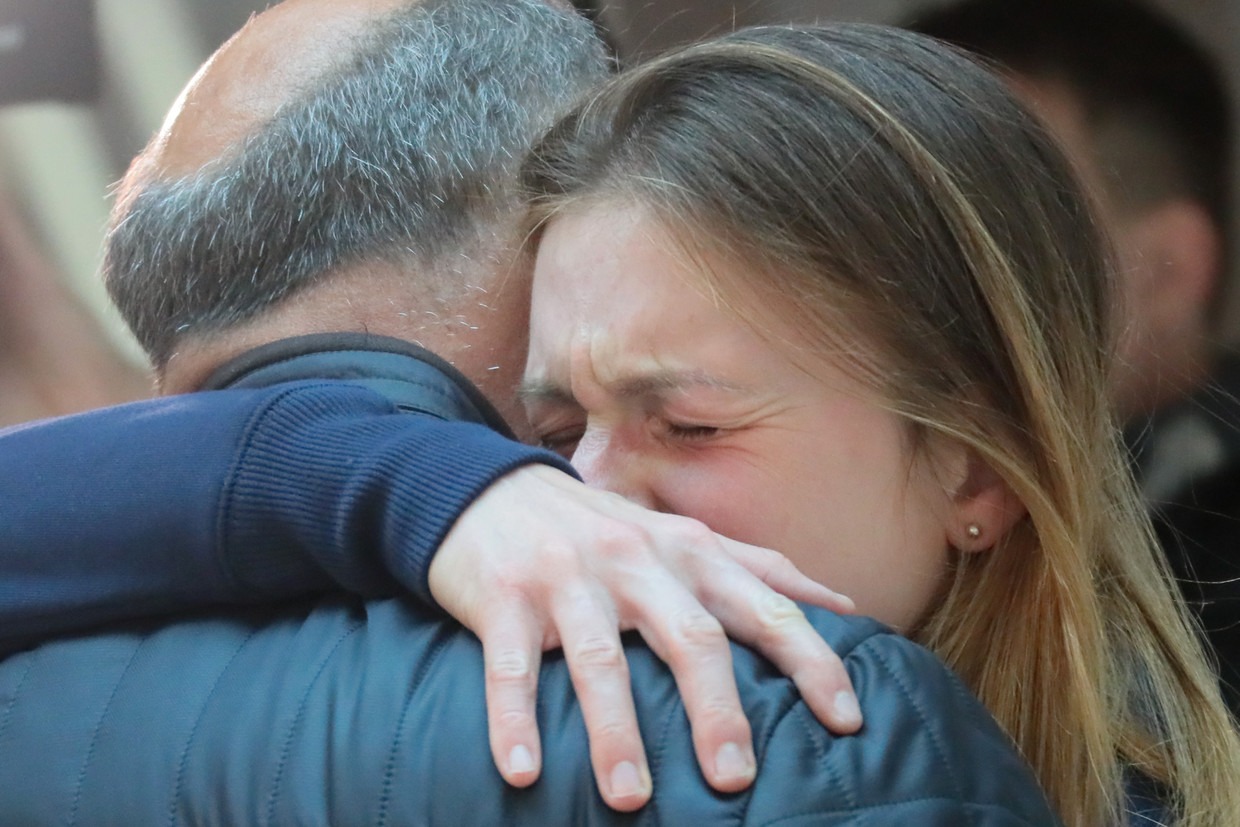
Closure of an ordeal: Butina embraces her father Valery Butin upon arrival at Sheremetyevo International Airport outside Moscow, Russia, October 26 © Sputnik/Vitaliy Belousov
Leontiev:You signed a plea deal. We were watching the case very closely, just like all of Russia. Some lawyers said the prosecutors might not have enough evidence to prove your guilt. Why then take a plea bargain?
Butina: Imagine you are in a foreign country, away from your parents… you have no contact with your family. You are locked up in solitary confinement. It’s very cold and you sit on the floor. You might be facing a 15-year sentence. I thought about how old I was going to be and whether my parents were going to be alive when that day came. And then you find out, that according to statistics, in the US about 98% of defendants who face a jury get convicted. So the chance of you losing is, well, quite high. Besides, who would have been judging me? I would have faced a jury in Washington – the people who watch CNN, the people who have already been fed this narrative, and with those people, it wouldn’t have mattered what I was being accused of. I would have been on trial for being Russian. I would have been sentenced to 15 years. So I believe I made the only right decision. There was no other way.
Russiagate’s first survivor: The harsh education of #MariaButina https://t.co/TJcyFfhSyc pic.twitter.com/m5RRJBXOGF
— RT (@RT_com) October 25, 2019
Leontiev: You said you were put in solitary confinement. Why? Is that standard procedure? Or did they deem you dangerous in some way?
Butina: No, it’s not standard procedure. I don’t know why they had to be so cruel. I tend to think – this is just conjecture – that maybe they were trying to break my will or something like that, learn some secrets. But I didn’t have any secrets. I think that when we started those briefings, as they call them, with the prosecutors, they understood everything after the first or second talks. They had all my computers, which they still do, and all of my papers. I hadn’t deleted anything, and they searched through everything. There was nothing there. But they couldn’t admit there was nothing. They had to justify why the US tax payers paid for this show. So they did.
Leontiev: So this was a way to apply pressure?
Butina: Yes, of course. No doubt about it.
Leontiev: Would you be willing to go back to the US now? Or ever?
Butina: Well, first of all, I can’t go to the US now – I’m not allowed to.
Leontiev: So it’s out of the question, then.
Butina: Yes, in light of my hideous crime, trying to build bridges between the two countries – I’m being sarcastic here, of course – I’m not allowed to set foot in the US for 10 years. It’s forbidden. And, you know, I would’ve refrained from going there at this point, because right now the attitude towards Russians is not great. I’m living proof of that.
Leontiev: Tell us about how you met Mr Torshin? Was he the one who sent you to America? What role did he play in all this?
Butina: No, no one sent me to the US. I have always respected Mr. Torshin as a more experienced friend and a mentor. We met at a demonstration in support of gun rights. He has always been in favor of the right to carry guns, and I respect him for it. It hasn’t always been a popular stance – never popular, really – but he has consistently advocated for gun rights regardless. He has never sent me anywhere, of course. He had traveled to the US long before I did, and he needed no help from me. So our relationship was that of a mentor-student basis, and I have a great deal of respect for him. I don’t know what has been happening to him recently, since we haven’t been in touch. I hope he’s well, and I hope we’ll have a chance to talk.
Leontiev: Your activism regarding the Second Amendment and that we need to have something like that in Russia, how did it come about?
Butina: It came from my family. My dad taught me how to handle a gun, and this interest of mine grew into an NGO to protect the rights of people who found themselves in situations that required self defense. It’s important to me, and my views on the issue haven’t changed. I’ll tell you what – the curious thing is, on the second day after my arrest, Russian diplomats came to me, even though gun rights have never been on the official Russian government agenda, even though I have never been a pro-Kremlin activist. The people from the Embassy came, and they supported me every day, they fought for me every day, just because I was a Russian national. I’m very proud of that.
Leontiev: Considering the complex environment we have, is it realistic to have a law similar to the Second Amendment in Russia? Even in the US, many people believe that it causes more murders and facilitates mass violence. Especially considering school shootings.
Butina: Unfortunately, this happens in Russia as well. Let’s be clear, our organization has always advocated self defense weapons to be legal, namely pistols and revolvers. Today, unfortunately, we are only allowed long-barrel firearms, which obviously cannot be carried for self defense purposes, and traumatic guns, which, sadly, tend to feature a lot in crime reports. I believe that those who are fighting crime on the front line – I mean people first and then the police – should be able to use real firearms in self defense situations. I think that can be done in Russia, we are in no way inferior to those countries that allow it.

Leontiev: Are you ready to continue your work?
Butina: Absolutely. Our organization is headed by a great person. By the way, my organization and my colleagues supported me, they wrote letters and no one abandoned me. I am very grateful for that. The head of our organization supported and defended me too. I think I should let him continue to represent our organization. And of course, I will support them. However, due to what happened, the focus of my work will certainly shift.
Leontiev:You won’t be working with the NRA?
Butina: I was expelled from the NRA. An official notification was sent to me – to my lawyers – saying that now that I have a criminal record, the NRA Charter requires to discontinue my membership, so I was officially expelled. So the NRA dodged that bullet.
Leontiev: Most Russians maybe have a stereotype of the NRA. What is the organization really like? What are the members like and who runs it?
Butina: There are all sorts of people there… Overall, the NRA is a great organization, I mean… I’ll put it this way: it’s very successful in terms of campaigning for gun rights. But there is one thing I want to say – and the fact that I was expelled speaks to that, too – it has become overly politicized. While I believe that an organization campaigning for gun rights, for self defense rights… you know, like me in Russia, it should be balanced in terms of politics, because it is more about general civil rights. Whereas the NRA today basically supports political candidates. And that’s exactly why they cannot just focus on gun rights anymore, and it’s a pity – because when I joined the NRA, when I went to the United States, I looked up to them, I came to see how they built it. And I wanted to see this American dream, you know, I was like a moth to a flame, attracted to all these great things. And unfortunately, now I don’t know the answer – where is life great for people? It seems to me America is not the answer.
Leontiev: The American dream turned into a nightmare.
Butina: Yes, it did.
Like this story? Share it with a friend!
[premium_newsticker id=”211406″]

This work is licensed under a Creative Commons Attribution-NonCommercial 4.0 International License.
![]() The Russian Peace Threat examines Russophobia, American Exceptionalism and other urgent topics
The Russian Peace Threat examines Russophobia, American Exceptionalism and other urgent topics


